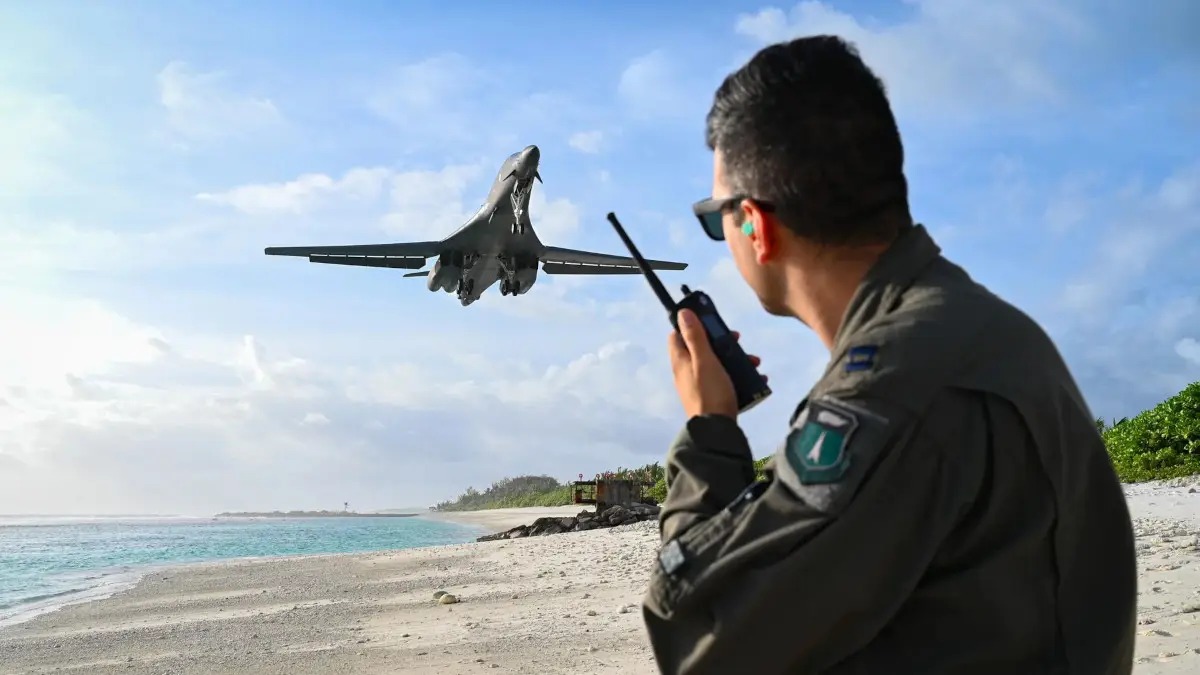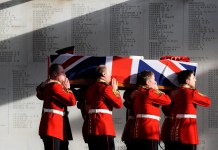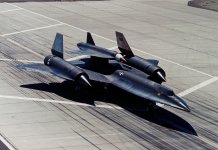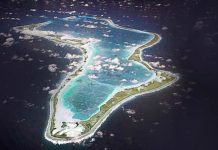Flight tracking data indicated that at least one US B-1B bomber operated over the Caribbean Sea near Venezuela’s coast on Thursday, marking the second US military aircraft demonstration in the region within a week.
President Donald Trump later denied the bomber flight occurred, calling the reports “false,” despite data from Flightradar24 showing a B-1B approaching Venezuela’s coast before turning north and vanishing.
This follows a similar mission last week when US B-52 bombers patrolled off Venezuela’s coast for hours.
The US military stated that the mission showcased its commitment “to proactively deter adversary threats, enhance crew training, and ensure the global force readiness necessary to respond to any contingency or challenge.”
The flight aligns with Washington’s ongoing military campaign against alleged drug traffickers, involving stealth warplanes and Navy ships, though no evidence has been provided linking the targeted vessels—eight boats and a semi-submersible—to drug smuggling.
The campaign, which began on September 2, has resulted in at least 37 deaths, as per an AFP count based on US data.
Tensions have escalated, with Venezuela alleging the US aims to overthrow President Nicolas Maduro, who claimed Wednesday that Venezuela possesses 5,000 Russian man-portable surface-to-air missiles to counter US forces.
Trump, addressing the B-1B reports at a White House event, reiterated that “it’s false,” while expressing discontent with Venezuela “for a lot of reasons.”
Meanwhile, Maduro launched a plea in English as tensions escalate between Washington and Caracas: “No crazy war, please!”
Maduro’s comment came after US President Donald Trump said he had authorized covert action against the South American nation, and amid an escalating US military campaign against alleged drug traffickers in the Caribbean and Pacific.

“Yes, peace, yes peace forever, peace forever. No crazy war, please!” Maduro said in a meeting with unions aligned with the leftist leader, a former bus driver and union leader.
The United States has deployed stealth warplanes and Navy ships as part of what it calls anti-narcotics efforts, but has yet to release evidence that its targets — eight boats and a semi-submersible — were smuggling drugs.
Last week, Trump said he had approved covert CIA action against Venezuela and was considering strikes against alleged drug cartels on land.
Trump accuses Maduro of heading a drug cartel, a charge the Venezuelan leader denies. “We know the CIA is present” in Venezuela, the country’s defense minister Vladimir Padrino said Thursday.
“They may deploy — I don’t know how many — CIA-affiliated units in covert operations…and any attempt will fail.”
Padrino was overseeing military exercises along Venezuela’s coast in response to the US military deployment in the Caribbean. Experts have questioned the legality of using lethal force in foreign or international waters against suspects who have not been intercepted or questioned.
Colombia Unhappy
At least one Colombian is among the dead, a fisherman who Petro now admits may have become involved in trafficking “intermittently” to escape poverty.
Colombia has publicly demanded that Washington halt the attacks, infuriating Trump, who has branded Petro a “thug” and drug trafficker.
As retribution, Trump has announced the end of hundreds of millions of dollars in US aid to Colombia and threatened tariffs on Colombian goods. If enacted, the cuts would stifle decades of security cooperation to curb the flow of cocaine from the world’s biggest producer, Colombia, to its biggest consumer, the United States.
Petro dismissed the impact of aid cuts, saying the funds go to support US non-governmental groups and to buy US arms.
“What happens if they take away the aid? In my opinion, nothing,” he said.
The United States provided Colombia with almost $750 million in aid in 2023, according to US figures.
There are growing fears among Colombia’s allies that a withdrawal of US funds could harm years-long efforts to stop the country from sliding back into conflict.
Despite peace accords a decade ago, pockets of the country are still controlled by guerrillas, cartels, and other armed groups.
The United States and other donors provide military aid and funding for coca eradication and demobilization projects.
Petro — a former guerrilla who will leave office after the May elections — has not shied away from the feud, which plays well with some of his core leftwing supporters.
White House press secretary Karoline Leavitt noted Petro’s renewed attacks Thursday: “I don’t think we’re seeing a de-escalation from the unhinged leader of Colombia right now.”
Petro also lashed out at Trump’s September decision to put Colombia on a list of countries classified as not helping in the drug war.
Describing it as “an insult,” he insisted Colombia was successfully countering cartels, despite cocaine production and exports hitting record levels.
“We have been the most effective in cocaine seizures in world history,” Petro claimed, adding that Trump was being fed misinformation by his opponents on Colombia’s “far right.”
He said they aimed to influence Colombia’s 2026 presidential election, to “strike Colombian progressivism and seize oil wells” in Venezuela.
Trump has said he is preparing attacks against traffickers operating on land, claiming maritime routes are being reduced.
“Any ground aggression is invasion and a rupture of national sovereignty,” warned Petro.
Behind the scenes, diplomats from both countries have been working to prevent relations from completely rupturing.
On Thursday, a string of Colombian ministers met with the top US diplomat in Bogota, for what the Colombian foreign ministry called a “frank dialogue.”
They announced that Colombia’s ambassador to the United States, Daniel Garcia-Pena, would return to Washington after being recalled amid protests.
Via: AFP




